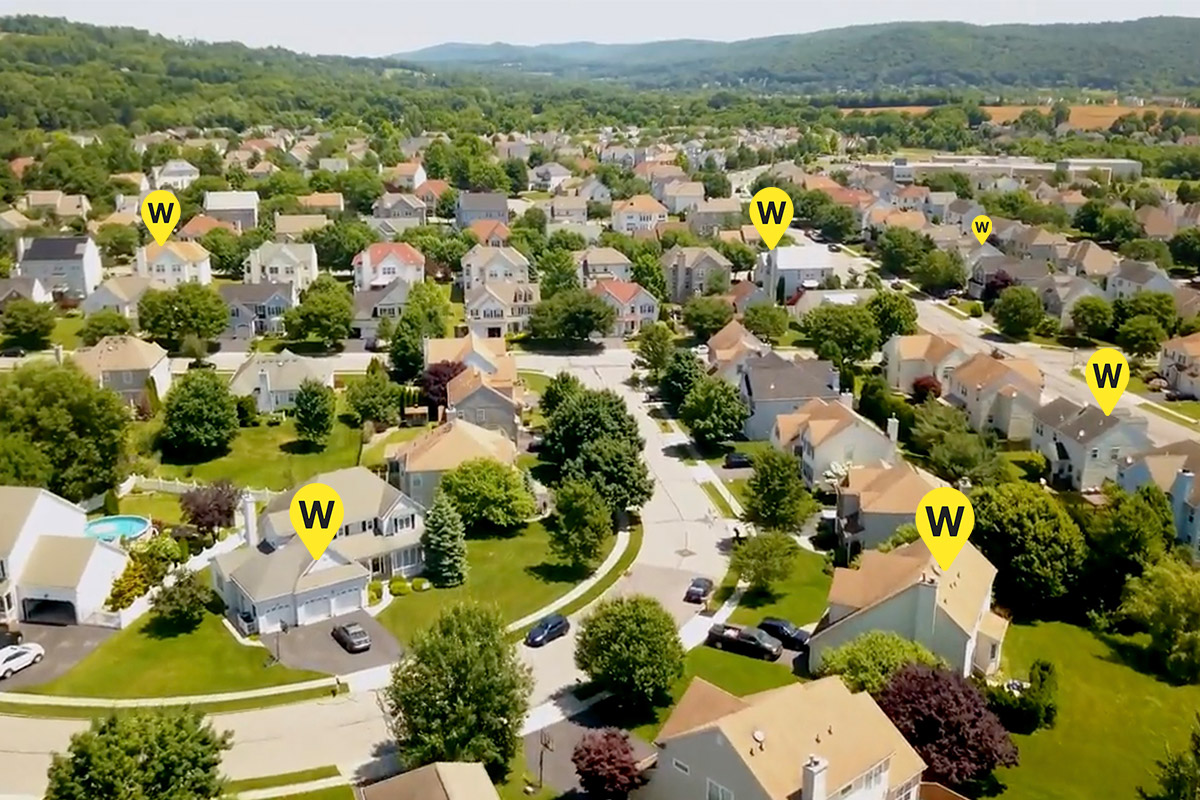Weichert Realty Homes For Sale – Self-help books and motivational speakers promise to sell us the tools to fix ourselves, to buy into a better version of who we could be. People are rediscovering the value of items that have been made by hand, with care and skill, as opposed to the impersonal, assembly-line products that dominate the marketplace. Similarly, in relationships, individuals may feel as though they are selling themselves, presenting their best qualities and hoping for the best outcome. Second-hand markets also promote the idea of a circular economy, an economic system that focuses on reducing waste and reusing products. Even objects with little intrinsic value can be sold with great meaning. These brick-and-mortar stores offer a different shopping experience, one that is often characterized by the thrill of the hunt. They also often help with legal and financial aspects, ensuring that the transaction is completed smoothly and efficiently. This is particularly evident in industries such as furniture, clothing, and electronics. We are all participants in a vast, interconnected economy, one that doesn’t just involve physical goods but extends to ideas, relationships, and even identities. Due diligence is a crucial part of the process, where the buyer investigates the business thoroughly to ensure that there are no hidden liabilities, potential risks, or operational inefficiencies. Through online marketplaces and platforms, small businesses and independent creators can sell their goods to a global audience. For those on a budget or looking to stretch their money further, second-hand markets provide an opportunity to purchase goods that would otherwise be out of reach. Beyond practical reasons, the appeal of quality goods for sale also lies in the sense of pride and satisfaction that comes from owning something well-made. Whether someone is looking to sell their business as part of a strategic decision or to retire, or whether a potential buyer is seeking an opportunity to invest in an established company, the process of buying and selling businesses is a common yet intricate part of the global economy. These platforms have also made it easier for individuals to sell their own pre-owned goods, turning unused or unwanted items into cash. Websites like eBay, Craigslist, Facebook Marketplace, and Poshmark have made it easier than ever for individuals to sell their unwanted items and for buyers to find exactly what they are looking for. This can bring about feelings of uncertainty, as there’s no guarantee that the right buyer or partner will come along. Unlike starting a business from scratch, which requires time to build a reputation and establish market credibility, buying an existing business means stepping into an environment where some of the groundwork has already been done. Online platforms also give buyers and sellers the chance to evaluate one another through reviews and ratings, adding an extra layer of trust and security to the transaction. This sense of history and individuality is part of what makes second-hand shopping so appealing.

Weichert Realtors Home Facebook
Real estate mls listingstownhomes, multi familycustomize your search

Search Houses for Sale Buy or Sell a Home with Weichert Realtors
Real estate mls listingstownhomes, multi familycustomize your search

Fredericksburg VA real estate office Weichert Realtors
Real estate mls listingstownhomes, multi familycustomize your search

Selling Your House The Weichert Way Weichert
Real estate mls listingstownhomes, multi familycustomize your search

Careers at Weichert Realtor Home
Real estate mls listingstownhomes, multi familycustomize your search

Weichert, Realtors Sunshine Properties, Port St. Lucie Port Saint
Real estate mls listingstownhomes, multi familycustomize your search

Weichert New Homes
Real estate mls listingstownhomes, multi familycustomize your search

Search Houses for Sale Buy or Sell a Home with Weichert Realtors
Real estate mls listingstownhomes, multi familycustomize your search

Weichert Realtors Home
Real estate mls listingstownhomes, multi familycustomize your search

Weichert, Realtors Nickel Group Home
Real estate mls listingstownhomes, multi familycustomize your search
For fashion-conscious individuals, buying second-hand is a way to express their personal style while also supporting sustainable practices. We are all participants in a vast, interconnected economy, one that doesn’t just involve physical goods but extends to ideas, relationships, and even identities. Furniture is another category that lends itself well to the second-hand market. In conclusion, the market for second-hand goods for sale is an ever-growing and dynamic space that offers numerous benefits to both buyers and sellers. In times of financial hardship, such as during recessions or periods of high unemployment, more people may turn to second-hand goods as a way to save money. Just as with material possessions, when a person is “for sale,” they put their value on display for others to assess. Relationships can become transactional, where each party enters into an agreement based on what they stand to gain. Our emotional lives, our personal narratives, and even our deepest fears have been monetized. These goods aren’t just products; they are symbols of craftsmanship, heritage, and pride. Yet, despite this shift, the appeal of quality craftsmanship has not waned. A business for sale is not always as it appears on the surface, and the buyer must examine the company’s financial statements, contracts, debts, and even its customer relationships before deciding whether to proceed with the transaction. Their inherent value comes not only from their physical characteristics but also from the values of durability and sustainability. The rise of minimalism and a desire for unique, vintage items has also played a role in the growing popularity of second-hand goods. In addition to individual sales, online marketplaces often feature businesses and professional sellers who specialize in second-hand goods, providing buyers with a curated selection of high-quality items. This subjective nature of value is what makes the “for sale” market so dynamic. This can be particularly advantageous for entrepreneurs who might have experience in business operations but lack the time or resources to build a new venture from the ground up. In the end, the real challenge is to navigate this world — to understand the forces of commerce that shape our lives, while holding onto those things that remain beyond the reach of money. The appeal of finding a hidden gem, something that has been cherished by someone else and is now available for a new owner, is a part of the allure of second-hand goods. Additionally, purchasing second-hand electronics can be a way to access high-end models at a lower price. These brick-and-mortar stores offer a different shopping experience, one that is often characterized by the thrill of the hunt.
The appeal of finding a hidden gem, something that has been cherished by someone else and is now available for a new owner, is a part of the allure of second-hand goods. By buying second-hand goods, consumers can feel good about supporting their communities and giving back to those in need. Online platforms also offer the convenience of searching for specific items, whether it’s a rare collector’s item, a particular brand of clothing, or a piece of furniture that fits a specific design style. Quality goods stand in stark contrast to this cycle. Quality goods for sale are not just limited to luxury items or high-end brands. Additionally, brick-and-mortar thrift stores and consignment shops provide a more traditional avenue for selling second-hand goods. Many buyers are drawn to industries where they already have experience, while others may seek a business in an entirely new field in order to diversify their portfolio. These platforms provide a convenient way for sellers to connect with potential buyers, set their prices, and arrange for shipping or pick-up. Art, music, literature — these expressions of human creativity and emotion are not always bound by the rules of commerce. On the other hand, traditional industries such as brick-and-mortar retail or manufacturing may face challenges, with many businesses in these sectors looking to sell or transition due to changing market conditions. Similarly, in relationships, individuals may feel as though they are selling themselves, presenting their best qualities and hoping for the best outcome. We are all participants in a vast, interconnected economy, one that doesn’t just involve physical goods but extends to ideas, relationships, and even identities. An item’s worth can be subjective, influenced by the desires, needs, and circumstances of both the seller and the buyer. They also have access to networks of potential buyers and sellers, which can help expedite the sale process and increase the chances of a successful transaction. Even in a marketplace where everything is commodified, there is still room for those moments and experiences that transcend value. This has made it easier for people to find items that might have otherwise been out of reach, whether it’s a rare collectible, an antique, or a product from another country. The internet, for example, has created a space where anyone can buy or sell almost anything, from physical products to intangible services. Whether buying vintage clothing, upcycled furniture, or pre-owned electronics, the growing popularity of second-hand shopping reflects a broader desire for more sustainable, creative, and conscious ways of living. Every click, every like, every follow, is part of an ongoing transaction. For sellers, the market for second-hand goods offers an opportunity to declutter their homes and make some extra money.